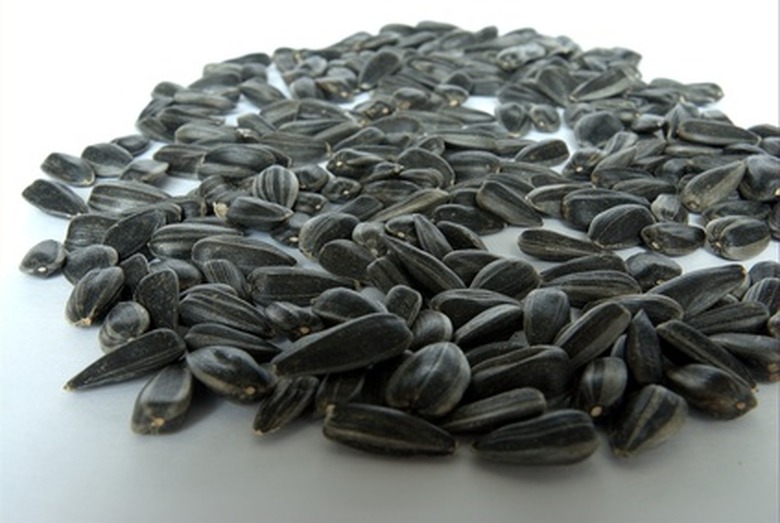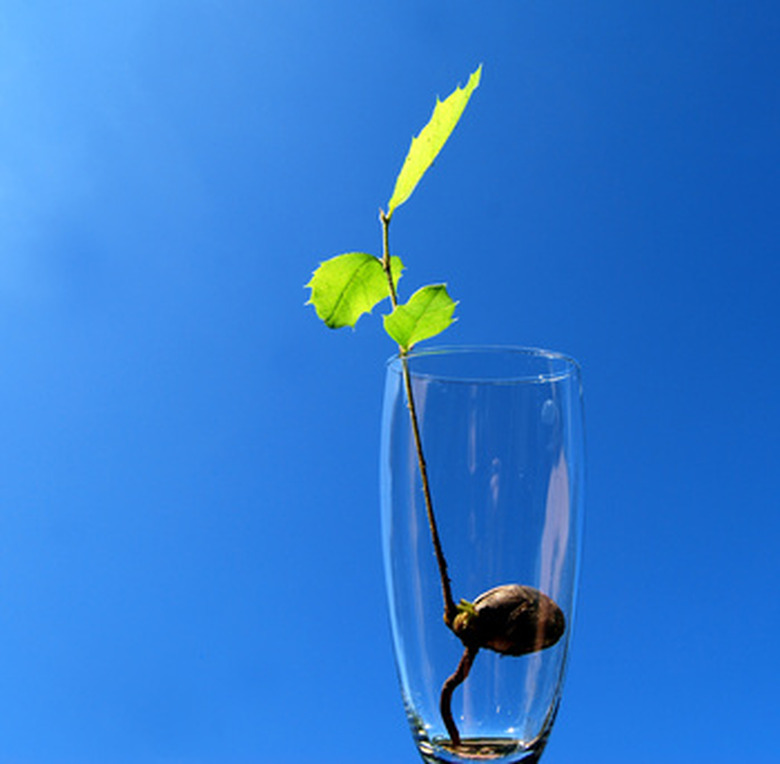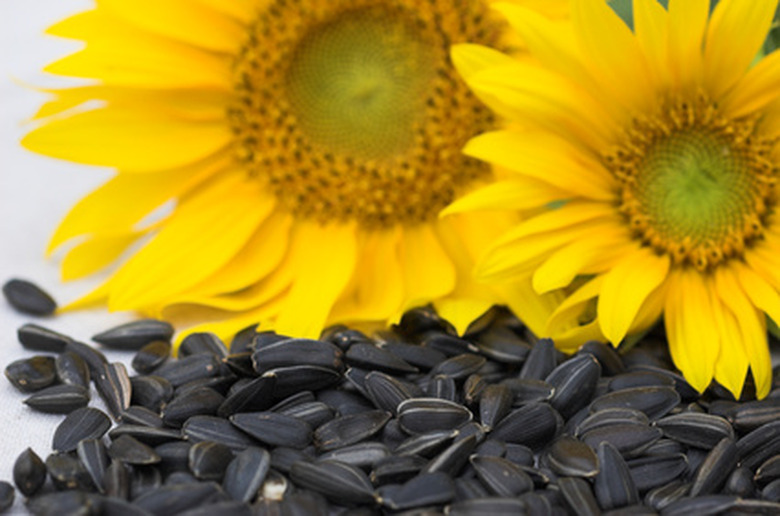Will Sugar Water Affect The Growth Of Sunflower Seeds?
Sunflowers, like many other flowers, reproduce by making seeds. These seeds require the correct temperature and watering procedures in order to grow. Seed germination begins when water passes through the seed's semi-permeable cell membranes and into the plant embryo. What is in the water determines just how well the seed grows. Watering sunflower seeds with sugar water does not promote seedling growth because it causes reverse osmosis to occur and completely dehydrates the immature plants.
Step 1
Sunflower seeds consist of shells that hold a plant embryo. Surrounding the embryo is a supply of nutrients that the immature plant needs in order to grow. The process in which the embryo grows out of its shell and becomes a seedling is known as germination. For a sunflower seed to germinate it needs to be in an environment that is consistently 70 degrees F and provides plenty of moisture. If kept warm and moist, a sunflower seed will germinate within a week of being in these conditions. Sunflower seeds do not necessarily have to be planted in soil in order to start growing. They can be placed in paper towels that are kept moist and held at the right temperature as well.
Step 2
- Sunflower seeds consist of shells that hold a plant embryo.
- If kept warm and moist, a sunflower seed will germinate within a week of being in these conditions.
Water and Seed Germination
Step 1
Watering a seed is crucial to a plant's development. The water activates certain chemicals known as enzymes that are present in the seeds. These enzymes stimulate the embryo. Once awakened by the enzymes, the immature plant begins to consume the nutrients in the seed. Within a week the seedling starts to push through the hull of the seed and begin to grow roots.
Osmosis
Step 1
Seeds take in water via a process known as osmosis. Osmosis occurs when a water molecule moves from an area that has a lot of water, through a semi-permeable cell membrane, to an area that has less water in order to create a balance of water content between the two sides of the cell membrane.
Step 2
- Watering a seed is crucial to a plant's development.
- Once awakened by the enzymes, the immature plant begins to consume the nutrients in the seed.
Effects
Step 1
When a plant cell is in contact with water that has a high amount of solutes (such as the sugar in sugar water), the water that is held on the inside of the plant cell moves out of the semi-permeable membrane. Osmosis takes place in an attempt to balance the water content on both sides of the plant's cells. This reverse osmosis is called osmotic shock, which can cause plants to shrivel up and die. In the case of sunflower seeds being watered with sugar water, the water on the inside of the seed will pass to the outside to balance the water content on both sides of the seed's cells. When this occurs, the seedling will be completely deprived of water and will die of dehydration. The sunflower seed will not germinate at all.
Warning
Step 1
Sunflower seeds do not need to be soaked in sugar water to start germinating. In fact, if you attempt to sprout your seed with sugar water they will not germinate at all. This is because the sugar that has dissolved in the water actually forces water that in on the inside of the seed to move outside, completely depriving it of the essential moisture it needs in order to become a seedling. Nature provides sunflower seeds with all of the nutrients it needs to grow. All you have to do is give it the right temperature and plain old water in order to start the germination process.
Step 2
- When a plant cell is in contact with water that has a high amount of solutes (such as the sugar in sugar water), the water that is held on the inside of the plant cell moves out of the semi-permeable membrane.
- This is because the sugar that has dissolved in the water actually forces water that in on the inside of the seed to move outside, completely depriving it of the essential moisture it needs in order to become a seedling.
References
- Plant Biology: Scientific Inquiry through Plants
- Gardening Guides: Sunflowers
- Biological Thermodynamics. Haynie, Donald T. Cambridge: Cambridge University Press. 2001.
- Bologie: Osmosis
- "Mechanisms of suicidal erythrocyte death". Lang, Karl, et al. Cellular Physiology and Biochemistry Volume 15. Number 5. 2005.


